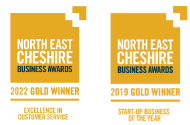Why Am I Not Getting Interviews?
“Why am I not getting interviews”. It’s a question that may plague you during your job search.
If you find yourself not getting interviews, we’re here to shed some light on why this might be happening.
The job market is really tough right now. Vacancies are down, more people are on the market, and it’s harder than ever to stand out.
If you’re applying for roles left, right and centre and still not hearing anything back – it’s not just you.
We’re speaking to candidates every day who are in the same boat – hardworking, experienced people who are more than capable but just aren’t getting a look-in.
It’s disheartening, especially when you’re putting in the effort and getting nothing in return. But while we can’t wave a magic wand to make every job application lead to an interview, there are things you can do to give yourself the best possible chance.
Here are some of the most common reasons we see – and what you can do about them:
1. Your CV isn’t making sense (or impact)
This is probably the most common one – and the easiest to fix. Think of your CV like a shop window: if what you’re showing isn’t clear, well-presented and inviting, people will keep walking past.
It needs to be:
- Clean and easy to read – keep it to 2 pages and use bullet points rather than huge chunks of text.
- Clear about who you are and what you want – a short personal profile at the top should sum this up in plain English.
- Relevant – cut anything that isn’t adding value. If you worked in a pub 15 years ago and it has no bearing on your current job search, it doesn’t need to take up half the page.
Also, make sure the job titles make sense. If your official title was “Team Excellence Coordinator” but it was actually a Customer Service role – say that. Recruiters and hiring managers are skim-reading. Help them understand you quickly.
Oh, and the biggest piece of advice we have is to create your own CV, don’t use the bog standard Indeed version – it will get lost in a sea of CV’s that all look exactly the same (and are usually a mess!)
2. You’re applying for the wrong roles
When the market’s slow, it’s tempting to apply for anything and everything just to feel like you’re doing something. But if the roles don’t align with your background or your skills, chances are you won’t be shortlisted – and you’ll just end up feeling more deflated.
The best use of your time?
Apply for fewer roles, but tailor your application properly for each one. Think about:
- What they’re actually asking for.
- How your experience matches that.
- What you bring to the table that someone else might not.
It’s also worth checking your CV is aligned with the level of role you’re applying for. If you’re going for a Junior Admin position but your CV is shouting “Senior Manager”, that mismatch can put employers off.
3. You’re not explaining yourself clearly
This is especially important if there’s anything slightly non-linear in your work history. For example:
- A recent career change
- A gap in employment
- A short-term contract or temporary role
- A move to a less senior position
You don’t need to write a full autobiography, but a short paragraph explaining the why behind your choices can make all the difference. Otherwise, people are left to make assumptions.
Use your CV profile to explain what you’re looking for now, and if you’ve had a break or change, just be honest. Hiring managers are more understanding than you might think – but only if they know the context.
4. You’re not highlighting the right experience
You might have all the experience they’re looking for – but if it’s buried under less relevant information, or written in a way that doesn’t speak their language, they won’t spot it and you’ll find yourself not getting interviews as a result.
Here’s what to do:
- Mirror the job ad: If they mention certain skills or systems (like Sage, or order processing), make sure that’s clearly visible on your CV.
- Put the most relevant stuff at the top: Your CV should be tailored for every role. If you’re applying for a finance admin job, make sure your finance-related duties come first.
- Use simple, direct language: Don’t assume people will know what a certain internal process or system name means – make it relatable.
And remember, employers are often skim-reading. If they don’t see what they need in the first 30 seconds, they’re moving on. Make those first few bullet points count.
5. Your expectations might need a reality check
This is always a sensitive one – but an important one. If you’ve had a career break or want to change industries, you might need to consider roles that are a step sideways (or slightly back) in order to get where you want to go long-term.
That’s not a failure – it’s a strategy.
There’s absolutely nothing wrong with being ambitious, but if you’re consistently going for jobs that are a stretch on paper, you’re likely to keep getting overlooked. A temporary step down to rebuild, refocus, or re-enter the market is sometimes the smartest move you can make.
If in doubt – ask. A good recruiter will tell you where your CV is likely to land and help you find a path forward that fits both where you are now and where you want to be.
6. You’re doing everything right – it’s just taking time
Sometimes, genuinely, you’re doing all the right things. Your CV’s solid. You’re applying for suitable roles. You’ve had good experience. But you’re still not getting interviews.
That doesn’t mean it’s not working. It just means the timing hasn’t landed yet.
There are always things happening behind the scenes that you won’t see – job ads put on hold, budgets getting signed off, hiring managers going on holiday, teams changing direction last minute. None of that is a reflection on you.
The trick is to keep going without burning yourself out. And if you’re feeling a bit stuck, don’t be afraid to ask for help.
So, what now?
Take a breath. You’re not failing – you’re navigating a really tricky market.
Start with your CV. Get a second opinion from someone who understands the roles you’re applying for. Be open to exploring different approaches – and if something’s not working, be willing to try something new.
And remember: not getting interviews doesn’t mean you’re not good enough. It means the right match hasn’t landed yet.
If you want any more support with your job search, please get in touch, we’d be happy to help!




